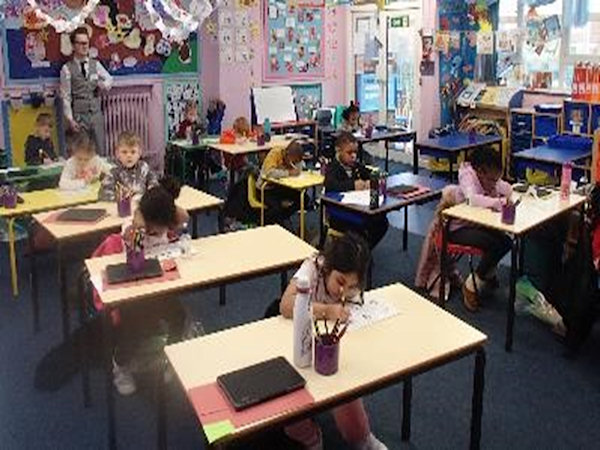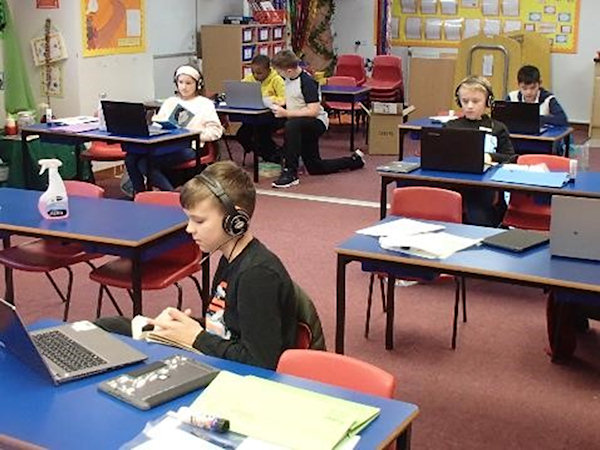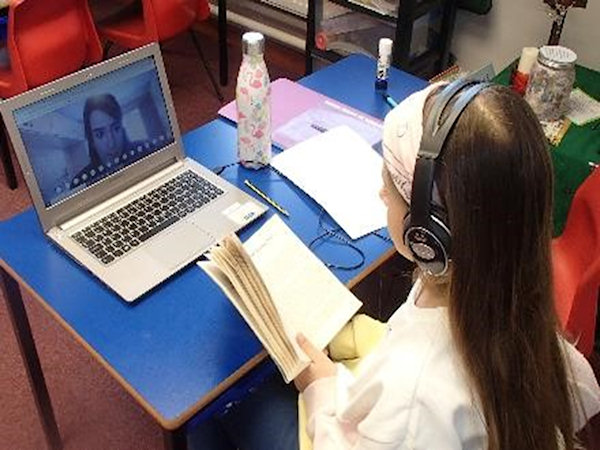Key Worker/Vulnerable Children
In the case of a national lockdown, school will remain open for children who have a key worker parent and vulnerable children. We will only be able to accept children who meet the criteria of either being vulnerable or having a key worker parent.
Vulnerable Children
Defined by the government as:
- assessed as being in need under section 17 of the Children Act 1989, including children and young people who have a child in need plan, a child protection plan or who are a looked-after child.
- have an education, health and care (EHC) plan.
- have been identified as otherwise vulnerable by educational providers or local authorities (including children’s social care services), and who could therefore benefit from continued full-time attendance.
A member of senior management will contact you in the case of a national lockdown if we believe that your child meets any of these criteria. Your child will be offered a place at school.
Key Worker Children
If one or both parents are considered critical workers or key workers, your child can continue to attend school.
Please see the government web page for critical workers and vulnerable children to check your job if you are unsure, but here is the basic guidance.
Parents whose work is critical to the coronavirus (Covid-19) and EU transition response include those who work in health and social care and in other key sectors.
Health and social care: This includes, but is not limited to, doctors, nurses, midwives, paramedics, social workers, care workers, and other frontline health and social care staff including volunteers; the support and specialist staff required to maintain the UK’s health and social care sector; those working as part of the health and social care supply chain, including producers and distributors of medicines and medical and personal protective equipment.
Education and childcare: This includes childcare, support and teaching staff, social workers and specialist education professionals who must remain active during the coronavirus (Covid-19) response to deliver this approach.
Key public services: This includes those essential to the running of the justice system, religious staff, charities and workers delivering key frontline services, those responsible for the management of the deceased and journalists and broadcasters who are providing public service broadcasting.
Local and national government: This only includes those administrative occupations essential to the effective delivery of the coronavirus (COVID-19) response, and the delivery of and response to EU transition. Essential public services, such as the payment of benefits and the certification or checking of goods for import and export including in government agencies and arms-length bodies.
Food and other necessary goods: This includes those involved in food production, processing, distribution, sale and delivery as well as those essential to the provision of other key goods (for example hygienic and veterinary medicines).
Public safety and national security: This includes police and support staff, Ministry of Defence civilians, contractor and armed forces personnel, fire and rescue service employees, National Crime Agency staff and those maintaining border security, prison and probation staff and other national security roles, including those overseas.
Transport and border: This includes those who will keep the air, water, road and rail passenger and freight transport modes operating during the coronavirus (COVID-19) response and EU transition, including those working on transport systems through which supply chains pass and those constructing or supporting the operation of critical transport and border infrastructure through which supply chains pass.
Utilities, communication and financial services: This includes staff needed for essential financial services provision (including but not limited to workers in banks, building societies and financial market infrastructure), the oil, gas, electricity and water sectors (including sewerage), information technology and data infrastructure sector and primary industry supplies to continue during the coronavirus (Covid-19) response, key staff working in the civil nuclear, chemicals, telecommunications (including but not limited to network operations, field engineering, call centre staff, IT and data infrastructure, 999 and 111 critical services), postal services and delivery, payments providers and waste disposal sectors.
If you are unsure as to whether you qualify then please seek advice from your employer. You will be asked by school to provide evidence that you do qualify as a key worker.
Stay at Home, Where Possible
The government message is clear; stay at home, where possible. If, during a national lockdown, you are able to keep your child at home then that is the safest place for them to be. Just because you qualify as a key worker, it may not always be the best option to send your child to school.
We encourage you to only send your child to school if absolutely necessary as the less people in school, the lower the risk of the virus spreading.
What Happens in School?
Children who are in school during a national lockdown will be supervised and supported to follow the timetable of work provided by their class teacher. They will complete their daily work whilst in school so there should be no need to do any extra at home if they are in school full-time. They also join any Teams meetings from school that involve their class.
School Rules and Routines During a Lockdown
School will be open for your children to arrive between 8.30 and 8.40am. Children should enter through the main entrance. You will need to collect your child between 3.00 and 3.10pm using the same one-way system that we currently have in place. So, you enter through the main entrance, collect your child and leave through the KS2 playground gate.
Children will NOT be expected to wear school uniform. Just sensible, warm clothes please. We want to reduce the number of personal belongings coming into school so please only send them with a clear plastic bag (as issued previously by school), their lunch (if necessary) and a bottle. The only things they may need in their bag is their reading book and work packs that they may be using. Please also ensure your child is wearing a coat and has hat and gloves for the cold weather.
In terms of lunch, we can provide hot meals for any child who requires one. If your child is entitled to a free lunch then we can offer them a free meal (either free school meal eligible or in Reception, Year 1 or Year 2 class). If your child is Nursery or Years 3 to 6 and wants a school meal then this can be paid for on ParentPay.
All children will be provided with bagels at break time each day.
As we are in lockdown, we politely request that you follow all government rules including no mixing of households outside of what is allowed. We need to do everything we can to keep ourselves and each other safe.
Photos from January 2021 Lockdown




